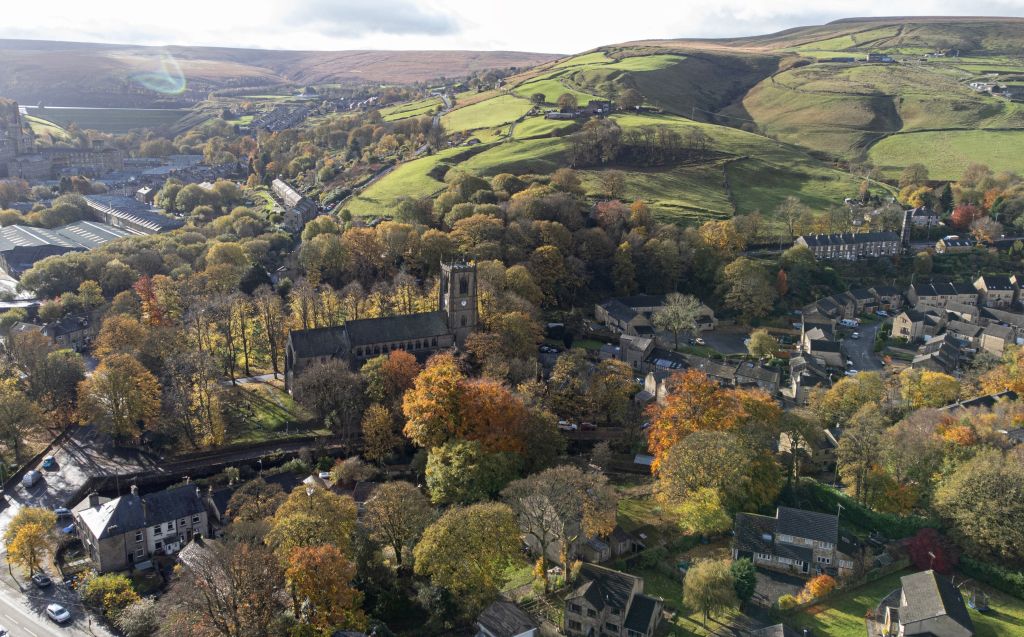- Saturday, July 27, 2024
Structural, experiential, and cultural barriers are identified as key obstacles, preventing ethnic minorities from fully engaging with nature.

By: Pramod Thomas
BRITISH wildlife charities are ringing alarm bells by describing the countryside as a “racist, colonial” domain where non-white people often feel marginalised, media reports said.
Wildlife and Countryside Link, a coalition comprising 80 organisations including the WWF, the RSPCA, and National Trust, presented their findings to MPs as part of a response to inquiries about the connections between racism and climate change.
The report, submitted to an all-party parliamentary group (APPG), said the British countryside is influenced by “racist colonial legacies,” creating an environment perceived as dominated by white people. This perception, the report said, deterred people of ethnic minority backgrounds from accessing and enjoying green spaces. Structural, experiential, and cultural barriers are identified as key obstacles, preventing ethnic minorities from fully engaging with nature.
The request for evidence follows the initiation of a 2023 investigation into “rural racism” in the British countryside by academic experts in “hate studies”.
According to the report, cultural obstacles stem from the incorporation of white British cultural values into the planning and administration of green spaces, as well as societal norms dictating how individuals should interact with these environments.
Further, the report said remnants of racist colonial practices persist, perpetuating the notion of nature as a domain primarily for white individuals. This perception, the report said, may dissuade ethnic minorities from using green spaces.
The report said a “rights-based approach” could help expand access to green spaces. It sought implementing a legally binding target to ensure everyone has a green space within a 15-minute walk from their home.
It also highlighted the environmental impact of British colonialism, saying colonial legacies contributed to the current climate and nature crisis.
Several organisations offered direct backing to the recent report, among them the League Against Cruel Sports and The Countryside Charity, previously recognised as the Council for the Preservation of Rural England.
Additionally, the report has garnered support from Froglife, an organisation dedicated to amphibian conservation, and the Bat Conservation Trust. These endorsements were extended to the report submitted to the APPG for race and community, chaired by Labour MP Clive Lewis.
Richard Benwell, CEO of Wildlife and Countryside Link, stressed the importance of ensuring nature is accessible to all, highlighting disparities in green space availability and the documented experiences of racism faced by people of colour.
“Nature should be for everyone to enjoy and to benefit from. Sadly, however, the evidence shows that people of colour in the UK are more likely to live in areas with less green space and that are more heavily polluted, and at the same time are significantly less likely to visit natural spaces,” he was quoted as saying.
“There are multiple complex reasons behind this, as well as contemporary well-documented experiences of racism that people are still encountering. Access for all and addressing the barriers people are facing should be one of the guiding lights for all nature sites.”
This discourse comes amid growing awareness of racial dynamics in rural areas, with initiatives like the Hate Studies Unit at the University of Leicester investigating “rural racism.”
Groups such as Muslim Hikers have raised concerns about the perceived unwelcoming nature of rural spaces for minority communities.
As Parliament examines the intersections of systemic racism and climate change, MPs are expected to issue a report and recommendations based on evidence provided by environmental experts this year.